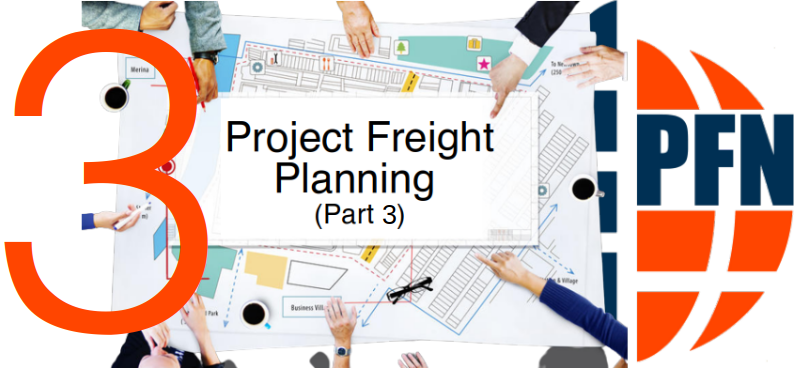Projects are divided into six stages:
- Project and Scope Definition.
- Project Initiation.
- Project Planning.
- Project Execution.
- Monitoring & Control.
- Project Closure.
Each project stage is characterised by a distinct set of activities that take the logistics project from the first idea to its conclusion. Each stage is of equal importance and contributes to the overall success of the logistics project.
1. Project and Scope Definition
Before a project starts the project freight manager must make sure the project goals, objectives, scope, risks, issues, budget, timescale and approach have been defined. This must be communicated to all the stakeholders to get their input and agreement. Any differences must be resolved before the project kicks-off.
2. Project Initiation
This is perhaps the most important stage of any logistics project as it sets the terms of reference within which the project will be operated. If this is not done well, the project will have a high level of failure. The initiation stage is where the project freight business case is set, scope of the project decided and stakeholder expectations set. The time spent on planning, refining the project business case and communicating the preferred benefits will help improve the probability of success. It is tempting to start the project quickly, but with a poor initiation phase it often leads to issues and even failure.
3. Project Planning
The key to a successful logistics project is in the planning. Creating a project freight plan is the first task you should do when undertaking any logistics project. Often project planning is ignored in favour of getting on with the work. This is when many people fail to realise the value of a project freight plan in saving time, money and for avoiding many other problems. Invested time up front is double saved time at the end.
4. Project Execution
This is where the work to deliver the freight, services or other wanted result is carried out. Most of the work related to the project freight is realised at this stage and needs complete attention from the project freight manager and the project freight service provider(s).
5. Monitoring & Control
Once the project is running it is important the project freight manager remains in control. This is achieved by constant reporting of issues, risks, changes, progress in general and the constant checking of the project schedule to ensure that the expected outcome will be reached.
6. Project Closure
Often neglected, it is important to make sure the logistics project is closed properly. Many projects do not have a clear finish or end-point because there is no formal sign-off. So to get the customers’ (project director or manager) agreement that the logistics part of the project has ended, and no more deliveries will be needed. Once closed, the project freight manager shall review the project and record the good and bad points, so that in the future, successes can be repeated, and failures avoided. We also call this lessons learned reporting. A logistics project that is not closed will continue to consume resources.






